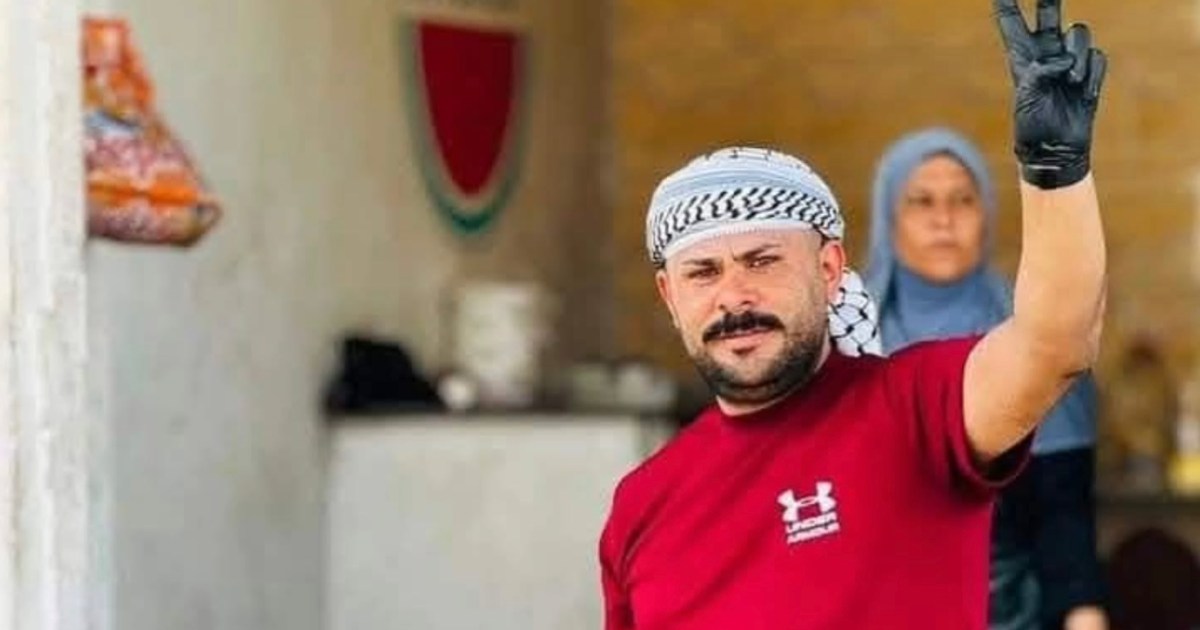It feels strange to grieve Chef Mahmoud.
There is something about mourning a stranger that condemns their real self to obscurity. I hesitate to grieve a brother I never had, a laugh I never heard, secrets I never learned, arguments and breakfasts we never shared. I hesitate to grieve the handshake I can never give him, for feeding thousands who may not survive, in a place I may never see again.
I hesitate, even as the deceased faced a cruel death, a death only possible in Gaza. I hesitate, even as I know his loved ones. Even knowing he honoured my family by name, even as I remember the times his brother’s eyes glimmered when he spoke of their work in Gaza’s North.
But when all is said and done, we know how this ends. He dies unjustly, and like a genetic imprint, we feel some burn of an old scalpel in our chest, the burn of a question, The Palestinian Question.
“How can I make this victim a hero? No no … how can I make this hero a victim?
Can we do both?”
As if it’s the English language that decides.
*
To a child, a “hero” wears a mask. But Chef Mahmoud had no mask. His face was shown from the start. His family was exposed from the start. They still are.
To an adult, a “hero” wears an army uniform and takes lives. Chef Mahmoud did nothing but save lives. He had no defence of camouflage, not even a rifle. His only weapon was the ladle in his hand – and that weapon saved thousands.
How can anyone but a hero outdo the courage of all these characters – fictional or not – better able to defend themselves? Will the world ever understand the sheer humanity of such a person? Is it lost in translation?
It feels like the world has lost fluency in the language that Palestine is most fluent in: the language of deeds. That language which Mahmoud Almadhoun left his mark on with the richest poetry.
There is the burn again. I feel the weight of my youth wasted outside Palestine, away from men no nation but Palestine could produce. Away from families who, under the crushing weight of an inevitable famine, say, “No thank you. We are too creative to starve, too upright to uproot.”
Or “you can hold a rifle to my head and strip me to my underwear, but I promise, you will never find what you are looking for. You will never incapacitate the heart that beats for Gaza. You cannot kidnap it into cowardice, impoverish it into dependency, or parch it into silence. I will stay here, forever.”
And there he stayed. Forever.
*
It feels strange to grieve Chef Mahmoud.
At first, I wanted these words to exalt him. I thought that was why my chest burned. But it still burns, and now I realise: none of this exaltation is for me, for the Almadhoun family, or even for us Palestinians. No. I am actually assembling these English words to appeal to the humanity of our colonisers by proxy, like a space capsule sent out in the hopes of finding extraterrestrial life.
I suddenly realise the importance of refining my tone, and keeping any emotional asides within neat parentheses, ten words or less. (I hate the fact that we have to die. I hate the fact that we know exactly who will die and how, that we predict this based on the boundless moral depravity of a genocidal colonising force that kills food workers, that slaughters our families one by one like it is nothing. I hate that I have to be articulate and proofread this, in case some in inconsistency in my writing flow fails to convince the reader that genocide is worth stopping.) I look at the time.
It is 3am, and after four hours pretending this kind man’s death is not devastating me, pretending through words, I finally understand what the burn is. We Palestinians know who we are. We know what Israel is. But what remains is for the world to see it.
As a world, you told us to endure the worst terrors and humiliations of the occupation, without turning to violence.
You told us to teach our children love and science, even if Israel has bombed every school.
You told us to sing and smile and cook through our suffering.
You told us not to be beggars, nor to starve in silence.
You told us to resist, but without any weapons.
To count on your “eyes” to defend us.
Chef Mahmoud did all of those things. And was assassinated by drone strike.
Are we your perfect victims now?
The views expressed in this article are the author’s own and do not necessarily reflect Al Jazeera’s editorial stance.
